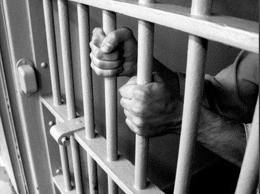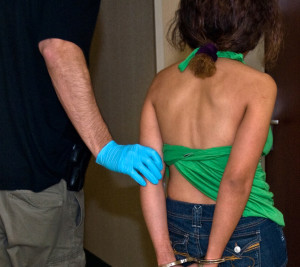
How does the criminal system work when I have been arrested for a felony? If you have been arrested for a felony in California, you are entitled to a preliminary hearing and a jury trial. This always applies unless you have been indicted by a grand jury. Since the grand jury is used very infrequently, the discussion will pertain to the preliminary hearing and jury trial only.
Chances are that you were arrested and taken into custody for the allegations of committing a felony offense. In some cases, it is possible that you remained out of custody after allegedly committing the offense and you received notice in the mail that you have a date to appear in court or that a warrant has issued for your arrest. If there is a warrant for your arrest it is possible to post the bail for the warrant amount with the court that has jurisdiction over your case. If this is accomplished, then the bondsmen will inform you of your date to appear for your arraignment. If you were arrested and taken into custody it is possible that you were bailed out of custody. If so, you were given a date to appear in court for your arraignment.
At the arraignment, it is very advisable to have an attorney with you. If you can not afford one, the court will have you fill out a financial declaration or in some cased simply ask you questions pertaining to your financial status. If you qualify for a public defender, one will be appointed to represent you. At the arraignment, it is possible that the District Attorney or even the judge may request an increase in your bail and if you can’t post the increased amount with the court at that time, it is possible to be taken back into custody with the increased bail. At the arraignment, an attorney will help you with these type of issues. Many times, where the D.A. requests an increase in bail, the attorney can be very helpful in convincing the judge to leave the bail as is.
The arraignment is also important for other reasons. Every defendant has a right to a preliminary hearing within ten court days of the arraignment. This date must be set by the court in consultation with the D.A. and the defense attorney. If the defendant is in custody it may be advisable to not waive any time and proceed to the preliminary hearing within ten court days. A court day does not include holidays or weekends. If the defendant is out of custody, then the defense attorney may request the defendant to waive his right to a speedy (within 10 days) preliminary hearing in order to better prepare for the hearing and conduct an investigation and interview witnesses. If this option is chosen, then the court will require a time waiver by the defendant waiving the right to have the preliminary hearing within ten days while still maintaining the right to have it at a later date.
A majority of felony cases resolve before a preliminary hearing. This is done by setting an informal hearing before the preliminary hearing and is referred to by many different names depending on the county of jurisdiction. Pretrial, disposition and reset, felony settlement conference all refer to the same thing. It is a hearing in which the prosecution and the defense get together and see if a resolution or “plea bargain” can be agreed upon. The idea is to offer the defendant a better deal than what would be expected if the case went to trial and the defendant was convicted. A majority of cases are resolved in such a way but not all the time. Felonies are litigated more frequently than misdemeanors. As such at some point, the felony case may proceed to a preliminary hearing.

What is a preliminary hearing? It is like a trial but there is no jury present and sometimes the peace officers will testify in place of the victim and as such the rules of evidence are relaxed and some hearsay is allowed that would not be allowed at a trial. It is a probable cause hearing to determine whether or not the criminal charges were committed by the accused. The standard of proof is lower at a preliminary hearing and the charges must only be shown to be true by a reasonable suspicion, not beyond a reasonable doubt which is the standard at trial. At the conclusion of the preliminary hearing, the defense attorney has the opportunity to argue to the judge that the evidence is insufficient to proceed to trial. In some situations, the judge may agree and dismiss the charges or some of the charges while finding others to have met the standard of proof for trial. In either case, the defense attorney also has the option to ask the judge to reduce felony charges to misdemeanors if the felony charge is a “wobbler”. A wobbler is a crime that can be filed as a felony or a misdemeanor and in some cases, after hearing all the facts at the preliminary hearing, the judge may find that while true, the accusations don’t rise to the level of felonious conduct and as such on the courts own motion and over the prosecution’s objection, reduce some, if not all of the charges to misdemeanors.
If one or more of the accusations are found to be proven to the level of proof required at a preliminary hearing, then the defendant will be held to answer for trial and a court date for the arraignment will be set. In some cases, the D.A. may not feel as sure about the facts of the case or if the victim testified in an equivocal manner or came across as a bad witness, they may become more flexible in their negotiation with defense. The defendant has a right to a jury trial within 60 days of his arraignment on the Information. This is the charging document after the preliminary hearing.
Always consult with an experienced criminal attorney before going to court. It can make the difference between jail or no jail.
